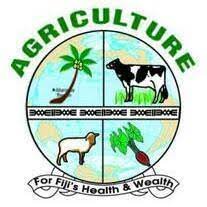FIJI imported a staggering $1.106billion worth of crop and livestock in 2023 alone while export of the same fetched a mere $343.4million during that year.
This was highlighted in the Ministry of Agriculture has highlighted in its recently released Non-Sugar Agriculture Sector Policy (2025-2035), in which it outlines ambitions to grow the sector and help reduce Fiji’s reliance on imports.
In its analysis of the current situation of non-sugar agriculture in Fiji, the ministry stated it accounted for an estimated 7 per cent of the gross domestic product (GDP) in 2023, with key contributors being yaqona (kava), taro, vegetables, cassava, poultry, bananas and beef, which together represent the top seven agricultural commodities driving GDP growth.
However, as Fiji tries to produce enough for both local consumption and exports, there is still a heavy reliance on the importation of food, some of which can be produced in Fiji.
According to the Agriculture Ministry’s analysis, most food-related imports are fresh and chilled produce, a significant portion of it to support Fiji’s tourism sector.
“Between 2021 and 2023, imports surged by 44 per cent, outpacing the 14.4 per cent growth in exports, likely driven by the resurgence of tourism and increased economic activity following the Covid-19 pandemic.
“When focusing solely on fresh and chilled produce, imports ($539.4m) again surpassed exports ($144.7m) in 2023.
“Fresh/chilled and value-added crop and livestock products constituted 25.5 per cent of exports and 15.8 per cent of imports in terms of national trade value,” it noted.
It further stated that a study titled ‘From the Farm to the Tourist’s Table’ by the International Finance Corporation (IFC) highlighted Fiji’s potential for import substitution as hampered by critical challenges that hinder the tourism sector from sourcing more locally grown produce.
These included inconsistent supply (particularly fruits vegetables, and dairy products); seasonality of produce available locally (particularly fruits and vegetables); poor quality of products (particularly meat, and dairy products); lack of food safety standards (especially for meat products), and a lack of networking between hotels, local producers, and suppliers.
The ministry said it was important that these challenges were addressed in order for Fiji to fully leverage the tourism sector’s potential for agricultural products and minimise imports.
Note: This article was first published on the print version of the Fiji Times dated July 21, 2025



